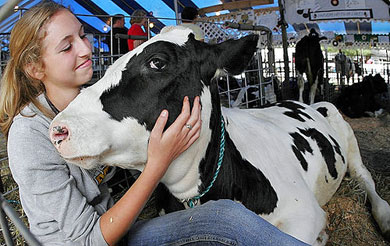I told a state-sponsored jazz radio station yesterday (NPR) and a few dozen other media outlets yesterday that as someone who shops a lot for groceries, I’d be  really interested in eggs that were verified through some kind of testing to be salmonella-free. Or reduced levels. Anything but the marketing crap that currently dominates the nation’s grocery shelves.
really interested in eggs that were verified through some kind of testing to be salmonella-free. Or reduced levels. Anything but the marketing crap that currently dominates the nation’s grocery shelves.
People are clamoring for local, natural, sustainable eggs in the wake of a 500 million egg recall that has sickened about 1,000 Americans with salmonella, yet there is absolutely no evidence that other eggs have lower levels of salmonella.
Buying preferences may help some folks feel superior, but salmonella happens – and it happens a lot. So why is there not a single retailer who will demand salmonella testing and market those results at retail?
As a consumer, I’m helpless in my choices for reduced-salmonella eggs, unless I buy pasteurized eggs, and even they are not fail-safe. I spend a lot of money at the grocery store feeding the herd of children I seem to have accumulated – why can’t someone give me some microbiological data on which to make a purchasing decision? Having more government inspectors does nothing to assuage my food safety doubts.
Marketing food safety at retail has the additional benefit of enhancing a food safety culture within an organization – if we’re boasting about this stuff I guess we really better wash our hands and keep the poop out of food. Maintaining a food safety culture means that operators and staff know the risks associated with the products or meals they produce, know why managing the risks is important, and effectively manage those risks in a demonstrable way. In an organization with a good food safety culture, individuals are expected to enact practices that represent the shared value system and point out where others may fail. By using a variety of tools, consequences and incentives, businesses can demonstrate to their staff and customers that they are aware of current food safety issues, that they can learn from others’ mistakes, and that food safety is important within the organization.
In the egg fiasco, no one is stepping up and saying, we know about salmonella, this is how we go above and beyond the minimal requirements of government, and this is why you should buy my eggs.

